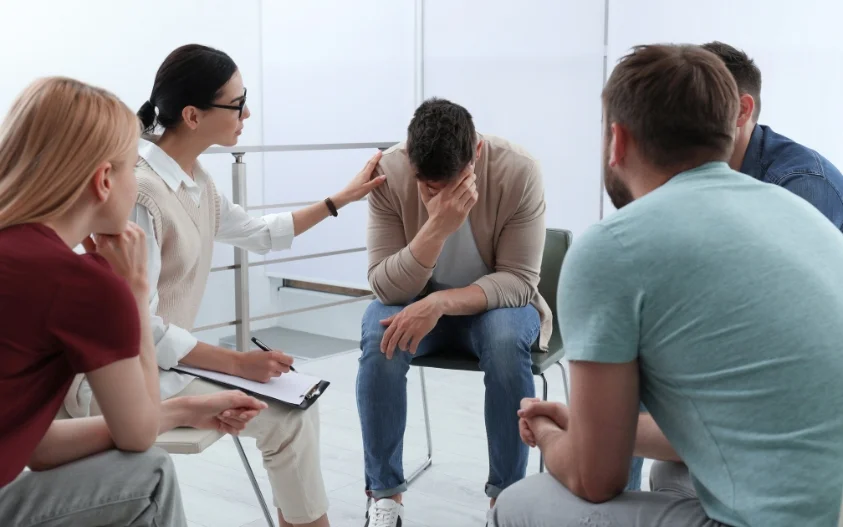24/7 Helpline:
(866) 899-221924/7 Helpline:
(866) 899-2219
Learn more about OCD Treatment centers in Floyd County
OCD Treatment in Other Counties

Other Insurance Options

Horizon Healthcare Service

UMR

Covered California

Magellan

Ambetter

Absolute Total Care

Kaiser Permanente

Health Partners

Oxford

BlueCross

Lucent

Magellan Health

BHS | Behavioral Health Systems

Group Health Incorporated

GEHA

PHCS Network

Amerigroup

Medical Mutual of Ohio

UnitedHealth Group

Highmark

Our Place – Drug and Alcohol Education
Our Place - Drug and Alcohol Education is a non-profit rehab located in New Albany, IN. Our Place - ...

LifeSpring Health Systems – Floyd County Office
LifeSpring Health Systems is a premier provider of co-occurring mental health and substance use diso...

Groups
Groups is private healthcare company providing outpatient treatment for opiate addiction using weekl...












































